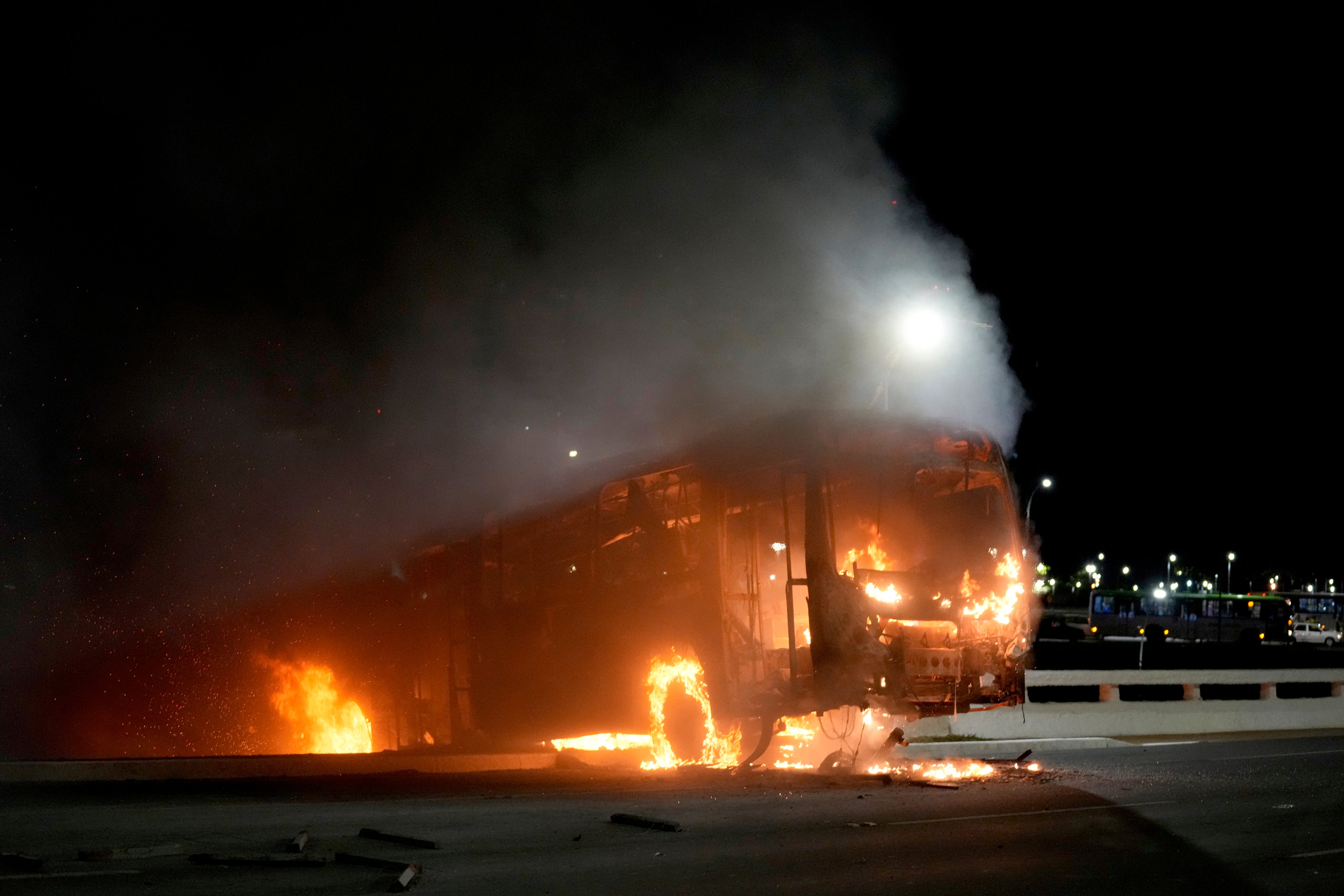Brazil police serve search warrants over-Bolsonaro protests
Brazil’s Federal Police have begun serving dozens of search warrants targeting supporters of President Jair Bolsonaro for blocking highways after his election loss

Brazil’s Federal Police on Thursday began serving dozens of search warrants targeting supporters of President Jair Bolsonaro for blocking highways after his election loss, according to a statement.
The operation was ordered by Supreme Court justice Alexandre de Moraes, who also presides over the nation’s electoral authority. He is responsible for two investigations into Bolsonaro supporters regarding allegedly anti-democratic acts and the spread of fake news on social media regarding the election.
The Supreme Court said in a statement the investigation related to the 81 search warrants is proceeding under seal, and the police said warrants were being served in seven states and the Federal District. Separately, Federal Police officers carried out 23 searches and at least four preventive detentions in Espirito Santo state related to electoral fake news, police said.
Many analysts have expressed concern that Bolsonaro has been laying the groundwork for an insurrection in the mold of the U.S. Capitol riot.
For more than three weeks after the Oct. 30 election, some of his supporters who refused to accept his narrow defeat to his leftist nemesis, Luiz Inácio Lula da Silva, blocked roughly 1,000 roads across the nation until the federal highway police began working to clear passage.
The federal highway police have said protesters blocking highways in Santa Catarina state, for example, employed “terrorist” methods including homemade bombs, fireworks, nails, stones and barricades made of burnt tires.
There have only been isolated incidents since police cleared roads there, though they noted in a Nov. 21 statement that most acts of resistance is now taking place at night, carried out by “extremely violent and coordinated hooded men,” acting simultaneously in different regions of the state.
Bolsonaro has rarely addressed the nation since his election loss. After staying out of the public eye for more than a month, he made his first speech to supporters outside the presidential residence on Dec. 9, saying he’s the commander in chief of the armed forces and that each citizen should work to build a better future for the country.
His supporters remain camped outside military buildings in several state capitals, pleading for intervention from the military. Most demonstrations are peaceful, but tactics deployed by hardcore participants have begun concerning authorities.
On Dec. 12 in capital Brasilia, Bolsonaro supporters clashed with the police after setting fire to several vehicles and buses and allegedly attempting to invade a federal police building. No one was identified or arrested by the police at the time, according to authorities.
Vice President Hamilton Mourão has emerged as a spokesman for the president, saying in interviews with local press and a recently published column that protesters should stand strong, while also condemning violent acts.
“The clamor of protests that we have seen since the proclamation of the election result … is legitimate, as much as some have tried to classify it as ‘anti-democratic,’” Mourão wrote Wednesday on Twitter.
Bookmark popover
Removed from bookmarks